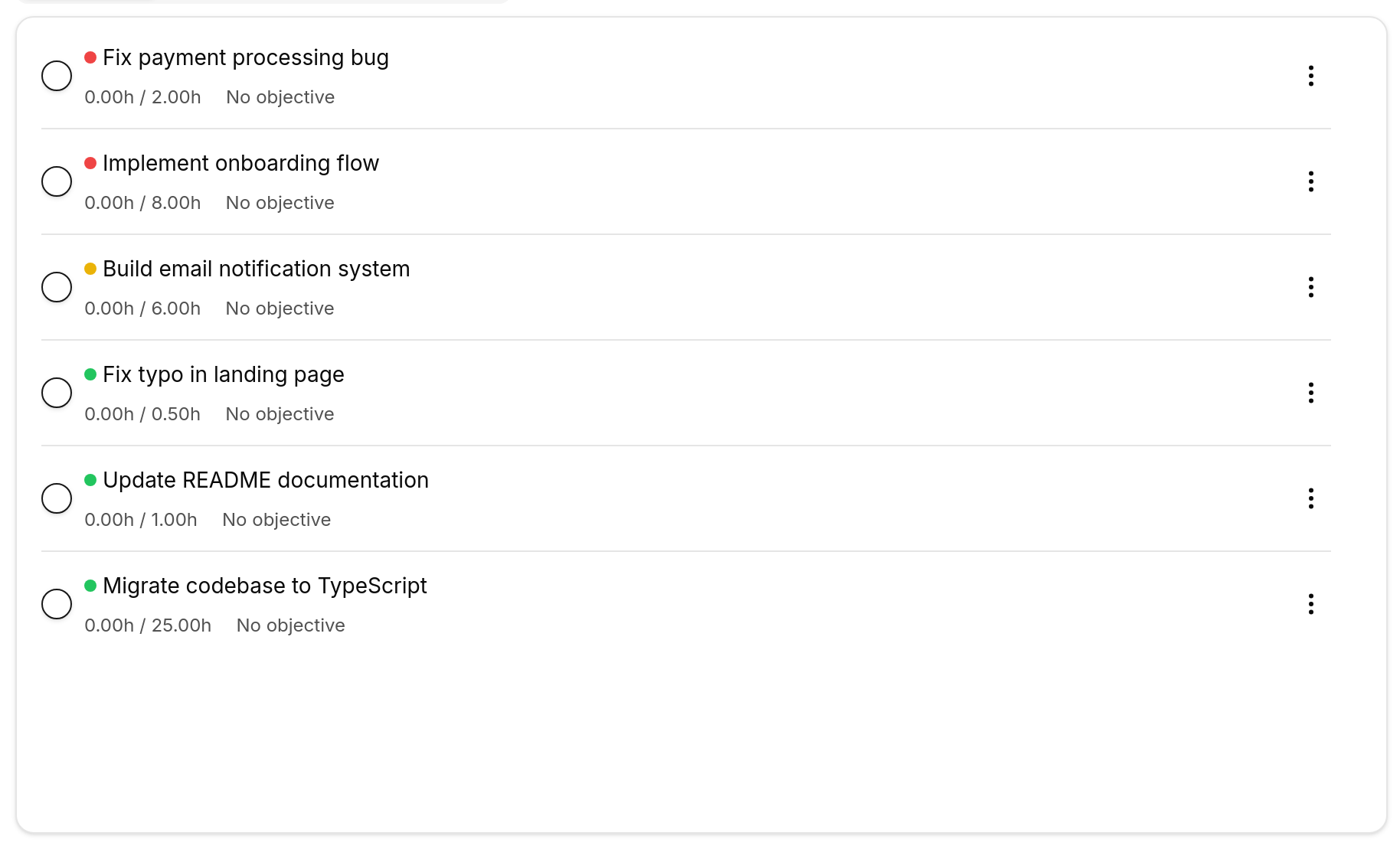Published October 26, 2024
Why we should never prioritize our tasks
Let data, not dopamine, drive your priorities
Ever notice how your most important work rarely gets done? I did. Recently, I spent tens of hours migrating some features from Javascript to Typescript, while the truly important work - the features that could actually move the needle - sat untouched in my list.
The problem isn't procrastination. It's not poor time management. And it's definitely not laziness. The problem is that we're spectacularly bad at prioritizing our own tasks. And it becomes painfully obvious when you look at how differently we handle tasks with external accountability versus self-directed work.
Think about it. When you have a hard deadline for your assignment, or your boss needs something by EOD, suddenly prioritization becomes crystal clear. The deadline is non-negotiable, the consequences are real, and boom - it gets done. But remove that external pressure? We're like a ship without a compass. Those personal projects, long-term career goals - tasks where we set our own priorities - they're the ones that consistently get pushed aside.
Our brains are great at many things, but turns out objective prioritization is not one of them. We consistently pick tasks that:
- Recently cross our desk
- Are fun or easy to accomplish
- Feel urgent - even when they're not
- Have external pressure
Meanwhile, the work that actually matters - the stuff that moves the needle - sits there gathering dust.
So, what's the solution? Stop setting manual priorities to your tasks. Instead, let systems and data do the heavy lifting. This isn't about removing human judgment - it's about combining our insights with objective data.
Think about what really determines a task's priority. While impact remains a human judgment call (and should), everything else - urgency, deadlines, time investment - can be measured and evaluated objectively. This is where data comes in.

I built trydeepwork's new prioritization system around this insight. When you create a task, you provide the essentials: estimated duration, impact, and urgency. Optional but powerful: deadlines and their nature (soft/hard). The system then does what computers do best - it crunches the numbers. It looks at how accurate your time estimates have been historically, compares your deep work goals against your actual capacity, weighs task urgency against real deadlines, and balances impact against time investment.

By combining all these signals, the system creates something powerful: a continuously updated, objective priority list that adapts daily.
I've been using this system for a month now, and the difference is clear:
- I always know what's truly next
- Low-impact tasks can't hide behind false urgency
- Priorities adjust automatically as circumstances change
- When something feels wrong, it forces me to check my assumptions
This is just version 1. Future iterations will factor in your calendar and schedules. But even now, it's clear: letting go of manual prioritization feels like taking off a heavy backpack you didn't know you were carrying.